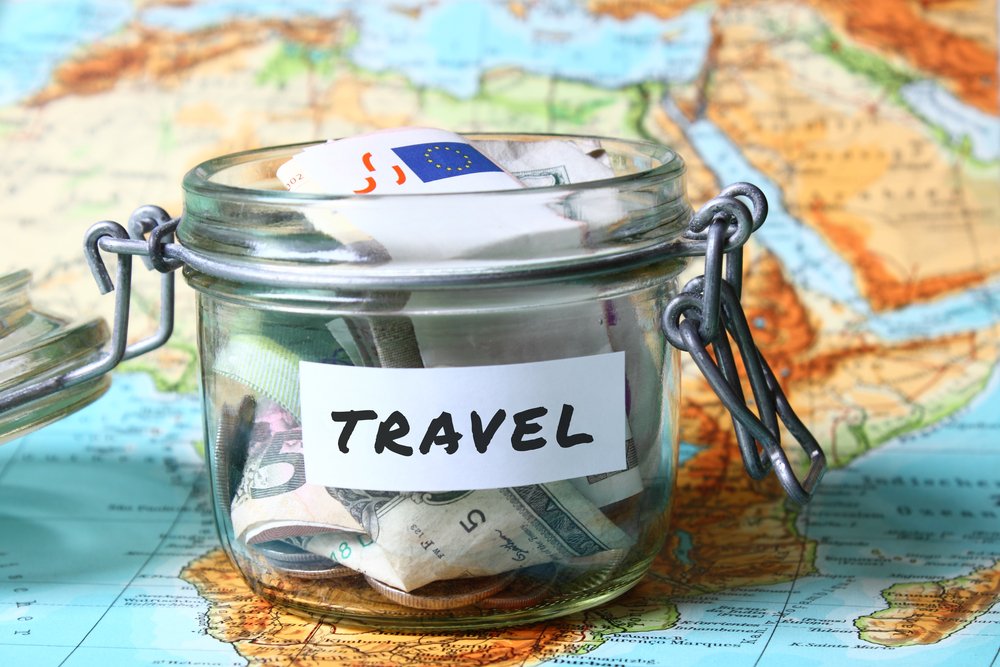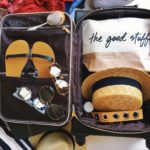Money and freedom go hand-in-hand. If you’re planning a long-term travel adventure, you’ll need to save up a good sum for housing, airfare, local transport, and daily expenses. Even if you plan to travel with very little money by volunteering or couchsurfing, you still need an emergency fund.
I’ve saved up for three big trips over the course of the past decade: 4 months in South America (2011), 14 months over 3 continents (2015-2016), and now I’m embarking on another adventure of 9-12 months through Europe, Africa, and India (2017-2018). I’ll share my personal strategies with you here in the hopes it inspires you to pick and choose what might apply to you or inspire you to develop strategies customized to your own lifestyle and values.
There’s three main things I do to save money and be able to live this lifestyle: 1) Establish a values-driven mindset, 2) Live a minimalist lifestyle conducive to saving, 3) Execute on savings and investment strategies.
1. Establish a values-driven mindset.
I’m very much aware, and you probably are too, that our consumerist society is fueled by promoting the idea that what we own changes and improves who we are. It tells us that things make us better, smarter, wiser, kinder, and sexier. I know this isn’t true and burned the association between my “stuff” and me years ago when I sold everything I didn’t need, started traveling for my job, and chose to live out of no more than one or two suitcases. (If you’re curious about this topic, I wrote extensively about fighting the consumerist mindset on my other blog, Life Before 30).
I also did something critical: I clicked off the TV, threw out the magazines, and turned down the volume of what I allowed to enter my intellectual diet. I empowered myself to purchase fewer things overall, leaving things behind when I travel, donating what I didn’t need, choosing fewer, but higher-quality possessions. As a result, today I feel feather-light. Things just facilitate my freedom; they don’t define me. Because I choose to buy less, I need less money. And the longer I’m away from “stuff” and the voices telling me I need it, I find I don’t miss it at all.
And the biggest thing of all? If you do nothing else, what do I think will help you save the most money?
Having a dream.
If your goal is to spend a year hitchhiking through Asia and you estimate you’ll need $10,000 to do it comfortably, then you’ll automatically adjust your lifestyle to make room for this dream, which becomes more important than a cocktail after work, a fancy pair of shoes, or a new iPhone. Without a big dream, those expensive little luxuries eat up the income that could be allocated to something arguably more important.
2. Live a minimalist lifestyle conducive to saving.
I haven’t rented an apartment long-term, owned furniture or a car, or bought anything besides basic clothing, food, temporary shelter, and airline tickets since 2013. The keys to my personal low-cost lifestyle are as follows:
- I have no debt, especially student loans. I was extremely fortunate to receive a full scholarship to university and publicly acknowledge that my rare circumstance facilitated a lot of my freedom. I strongly discourage students from going into debt to get an education, even if it means attending a less prestigious school or working part-time.
- When I work, I work in a freelance capacity for companies that send me overseas. That means they pay for my housing and some living expenses while I’m on assignment and I pocket my salary. You can achieve something similar by choosing to live in a low cost city or country (especially if you can earn income in USD/EUR but spend in local currency), doing a work holiday scenario in Australia or New Zealand (save strong AUD/NZD to travel in lower cost countries), or teaching English in countries that pay generous teacher salaries (Qatar, South Korea).
- When I travel, I stay longer, seek out unconventional locations, and volunteer, all of which reduce the cost of my trip. I earn money on the road with my writing and coaching business.
- I don’t drink alcohol or smoke cigarettes, I cook at home whenever possible, I’m mostly vegetarian, and I don’t buy clothes or shoes very often because I travel with limited luggage. I invest in slightly better things when I do have to buy them so they last longer and I enjoy using them for longer. (Before you think I’m just not human, I do have a DSLR, own a new Macbook Air and $200 Ray Bans, and have no qualms about buying a good coffee every day. These are not luxuries purchased on a whim, however, they are things I thought about purchasing and decided I will use them and enjoy them enough to warrant exchanging my time and labor for them.)
But maybe you like your apartment or your car or even your job based firmly in New York, so here are some suggestions I’d give to anyone to reduce the cost of their lifestyle.
- Track your spending for two months straight. A strategy for saving money starts with simply knowing (in excruciating detail) what you presently spend your money on. You’ll most likely adjust automatically once you see the reality of your spending habits.
- Implement a cash-only economy for yourself. I spend so much less when I decide on what I’m comfortable spending in a week, take it out of the ATM on Monday, and not go back until the following Monday. It becomes a game: can I get to Monday with leftover cash?
- Decrease your fixed expenses (rent, insurance, car payments, etc.). This is the biggest way to drastically save money: live in a smaller apartment, move out of Manhattan, get rid of your car if you live in a city with some form of public transit, get a used car instead of a new one, and focus on paying off all your debt as quickly as possible.
- Increase your income. Try operating a small side business, ask for a raise, or get a higher paying job. Wait tables on the weekends if you have to. (You’ll also spend less money when you’re busy.)
- Simply don’t spend on what you really don’t have to. Do you need to go out to happy hour three times a week after work? Do you really need the latest iPhone? Do you need wine at dinner, too? Do you need organic macadamia nuts? Can you get more of your groceries at Aldi instead of Whole Foods? The price of these alternatives is your freedom.
- If you’re planning to quit your job to travel, quit in the middle of the year. I’ve accidentally done this twice and I got a sizeable tax refund because my income for the year wound up being lower than my original tax bracket.
- Play with currency advantages. Anytime you can, earn and save in a stronger currency and spend in a weaker one.
3. Execute on savings and investment strategies.
Don’t let the words fool you, I’m not an expert on the stock market. But I’m 28 and have been working and saving since I started working at 15, so I know a few things.
Here are the basic ways I save and invest that might inspire you to do what works for you:
- I keep a year’s worth of living expenses squirreled away in a credit union in upstate New York. I prefer credit unions to commercial banks because they don’t participate in the risky derivatives market (at least mine doesn’t), they haven’t been bailed out in the past decade unlike almost all the other major banks, and their loans fund local businesses and individuals. Not to mention I pretty much have to go there in person to withdraw it, which ensures I only touch this fund in case of emergency. I find I’m able to take risks and live the life I really want because I know this money is there if things go wrong.
- I own a little bit of BitCoin and Ether because I’m interested in the cryptocurrency market and think even a small amount will increase in value over the next several years.
- I keep half of my “liquid savings” (money I will dip into over the next year to float my adventures) in a Wealthfront account. Wealthfront is a low-risk robo-investor that uses algorithms to invest my money. It produces a very small rate of return, but higher than I’d get with my money sitting in a commercial bank account.
- The other half of the funds that I have allocated for travel and supporting me on long stretches of adventure and self-employment is spread across various commercial banks (I do this so I have multiple debit cards and I just don’t trust big banks in general). I like Charles Schwab best because they don’t charge ATM fees overseas and my Chase credit card because I can use the points towards booking reduced flights.
- I have an independent 401k from my first job at IBM and try to put about $3,000/year into it, which is minimal but better than nothing. I prefer to keep my savings liquid so I have ready access to it for investing in education, projects, or lifestyle changes, but I know it’s smart to save for retirement. If I put just this minimal amount in every year from the age of 21, it’ll look pretty good by 65.
For more information on how to manage your money in a way that fosters freedom and long-term travel, read how you can travel the world for less than $15,000 a year.









